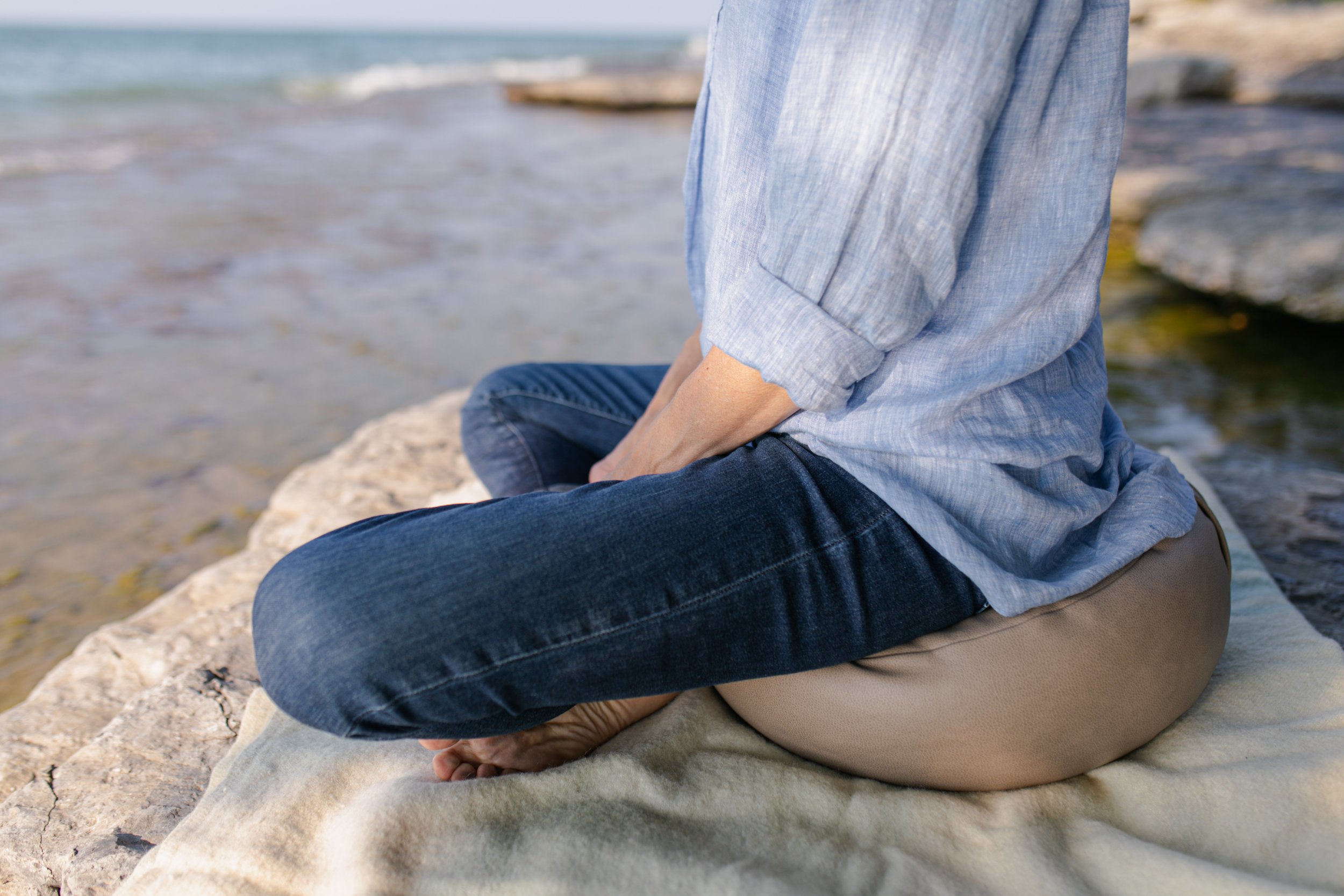
What is Mindfulness?
"Mindfulness is about remembering that I live in an ever‑changing body and family, ever‑unfolding communities and cultures, geographies and ecologies—and exploring who I am in relation to the endless unknowns and uncertainties that come with the truth of that remembering."
The Value of Mindfulness
Mindfulness-based interventions have been shown to reduce anxiety, depression, and other distress. Beyond symptoms, mindfulness nurtures some of the most essential life skills:
- self‑awareness
- emotional regulation
- empathy
- communication
- decision‑making
Grounding in these skills, we discover more freedom in how we live, choose, and respond.
While mindfulness-based interventions can reduce a variety of symptoms, everyone's experience is unique, and outcomes may vary.
Ways of Understanding Mindfulness
So what is mindfulness? There are many ways to describe it:
- As a tool — a practical support for calming the mind or reducing discomfort
- As an approach — an attitude of respect, presence, and clarity in daily life
- As a goal — to act skillfully, speak clearly, and live with balance
"I don't have mindfulness entirely figured out. Thank goodness, it's called a practice."
Three Attentional Skills
Researcher and teacher Shinzen Young offers a helpful definition: mindfulness is the cultivation of three attentional skills—concentration, sensory clarity, and equanimity.
Many clients especially resonate with equanimity—the possibility of meeting life's intensity without being overwhelmed by it. Together, these three skills give us more choice in how we meet moments of pain, stress, or joy.
What people often don't realize is that these abilities are embodied, not just "learned." Unlike cognitive strategies, which rely on remembering the right thing at the right time, these skills can be trained into the sensory system itself—making them accessible even when the nervous system is taxed.
Two Operating Principles
Shinzen also describes two simple but profound truths:
The body longs for comfort. There is always some sensation calling for attention, reminding us that bodies are never fully at rest.
The mind longs for answers. Thoughts generate questions endlessly, making the mind prone to dissatisfaction.
For me, these two principles are a kind of compass. Bodies age. Mysteries remain unsolved. Mindfulness prepares me—not to fix such realities, but to stay steady, compassionate, and sometimes even at peace within them.
Mindfulness as a Way of Living
Mindfulness for me has become the way I want to show up and be—experience and express myself in the world. Not to be noble or calm but to simply feel connected and part of. I want to be amazed by the smallest of wonders and to never even have to go far from home to feel the largeness of what it means to be in this body, appreciating that all of it could change in an instant—and is in fact, always doing so.
Frequently Asked Questions
For more details on booking, fees, and how sessions work, see the main Frequently Asked Questions on my Services page.
If you're unsure where to begin, or whether mindfulness is right for you, I welcome your questions. Every journey starts with a single moment of curiosity.
Please reach out to book a complimentary, confidential, 30‑minute online conversation.
For speaking or podcast invitations at the intersection of mindfulness, spirituality, and health—please be in touch.
kara@karabraun.health
-
Not at all. While meditation is one way to practice, mindfulness is also about how we relate to the messiness of everyday life. In one-on-one coaching, clients explore practical integration into relationships, work, loss, and resilience.
-
You're not alone. Mindfulness is not one-size-fits-all. We adapt practices to your nervous system, history, and capacity—at your pace.
-
Yes. Research and lived practice show real support for emotional clarity, nervous‑system stability, and dignity in times of transition.
-
None at all. Curiosity is enough. Practice starts wherever you are.
-
In my work, 'practice' can mean two things: the ongoing practice of mindfulness—a way of being present in daily life—and my psychotherapy practice as a professional. Both support your unique journey in different, complementary ways.
-
Yes. I have hundreds of hours of silent residential retreat experience and know the value of having integrative support during and after extended periods of practice.
-
Sessions are available for those seeking mindfulness-informed, trauma-sensitive guidance in integrating psychedelic experiences for the sake of psychospiritual growth, and alleviating existential distress at the end of life.
Looking for end-of-life or MAID support? Visit the End-of-Life FAQ for specialized guidance.
Emergency Note
If mindfulness raises distress for you, please seek non‑urgent help. For emergencies, contact crisis services. Though rare, meditation injury or spiritual crisis can be overlooked in clinical care. I provide safe, trauma‑informed consultation whenever possible.
Scope of Practice Disclosure
Kara Braun is a Registered Psychotherapist (Ontario) and provides psychotherapy only to clients physically located in Ontario, Canada.
Mindfulness coaching and consultation are available internationally; these services are not psychotherapy, do not include the controlled act of psychotherapy, and do not substitute for regulated mental health care.
Please ensure coaching is permitted in your region. For urgent needs, contact your local emergency services.



